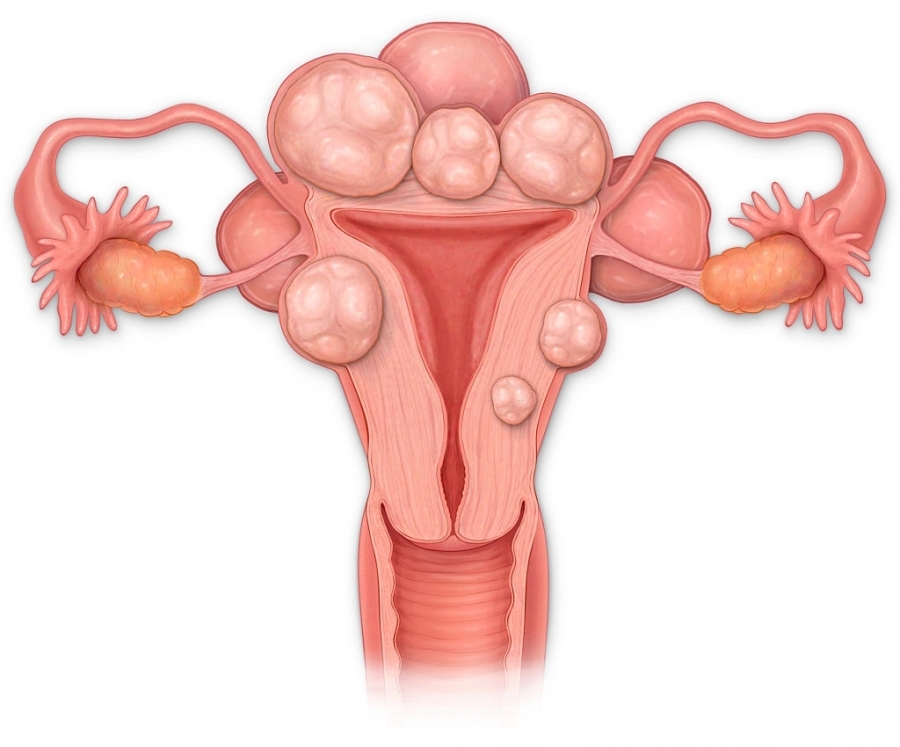Health
Uterine Fibroids: What Are Its Causes, Symptoms, and Treatments?

Uterine Fibroids are non-cancerous tumors that develops in a woman’s uterus. They are also called leiomyomas or myomas and appear mostly during childbearing years. Fibroids won’t likely lead to a cancer and will not increase the risk of having one, but there’s no harm to seek for an advice from a gynaecologist.
Uterine Fibroids vary in shape, size, and location. It can be small and can’t be seen by the human eye and it can also form into big masses that can affect the shape and size of a woman’s uterus.
Causes of Uterine Fibroids
Doctors don’t really know the exact cause or how it develops but there are factors that they consider which influence the formation of fibroids.
- Family FactorsIf someone in your family has a history of this condition, maybe it’s your mother, grandmother, or your sister, there’s a possibility that you may develop it as well too.
- GeneticsResearchers identified that there’s a change in genes on Fibroids that differ from the normal cells in the uterus.
- HormonesThere are hormones that contributes to the growth of fibroid in the uterus. These are Progesterone and Estrogen. During a woman’s monthly period, they cause the lining of the uterus to thicken affecting fibroid growth.
- Extracellular Matric (ECM)ECM is responsible for making the cells stick together. Uterine fibroids have an increased number of ECM than the normal cells making them fibrous. ECM also contains growth factors that causes the biological changes in the cells.
Symptoms
Usually fibroids don’t have any symptoms. But if they do, the symptom depends on how many they are, their size, and location. Common symptoms and signs of uterine fibroids include the following:
- Heavy bleeding during your period and includes blood clots
- Lower back pain or in the pelvis
- Frequent urination
- Longer menstruation
- Constipation
- Pain while having sex
- Swelling of the Abdomen
Call a gynaecologist when you start to experience these conditions:
- Difficulty in emptying the bladder
- Severe pain in the pelvis
- Severe pain during menstruation
- Fullness or pressure in your abdomen
Treatment for Fibroids
A treatment plan will be prepared by a gynaecologist depending on the size of your fibroids, your age, and the status of your health. You may then receive different kinds of treatments.
- Surgical ProcedureMyomectomy is the surgical procedure that is performed to remove large or multiple number of fibroids in the uterus. Abdominal myomectomy involves the creation of a large abdominal incision to reach the uterus for fibroids removal.
- Home RemediesThe following home remedies can help you with your concern on fibroids:
- Massage
- Less intake of high-calorie foods
- Better management of stress
- Lose weight if overweight
- Acupuncture
- Doing yoga
- Traditional Chinese medicine (Gui Zhi Fu Ling Tang or GFLT)
- Medications
There are certain medications that can regulate your hormone levels that may be prescribed by a gynaecologist to decrease the size of fibroids. GnRH antagonists work by stopping the body from producing FSH or follicle-stimulating hormone and LH or luteneizing hormone. Luprolide or Lupron is a gonadotropin-releasing hormone or GnRH agonist that causes the levels of progesterone and estrogen to drop. This will stop your period causing the fibroids to shrink.
-

 Tech11 years ago
Tech11 years agoCreating An e-Commerce Website
-

 Tech11 years ago
Tech11 years agoDesign Template Guidelines For Mobile Apps
-

 Business6 years ago
Business6 years agoWhat Is AdsSupply? A Comprehensive Review
-

 Business10 years ago
Business10 years agoThe Key Types Of Brochure Printing Services
-

 Tech8 years ago
Tech8 years agoWhen To Send Your Bulk Messages?
-

 Tech5 years ago
Tech5 years ago5 Link Building Strategies You Can Apply For Local SEO
-

 Law5 years ago
Law5 years agoHow Can A Divorce Lawyer Help You Get Through Divorce?
-

 Home Improvement6 years ago
Home Improvement6 years agoHоw tо Kеер Antѕ Out оf Yоur Kitсhеn































